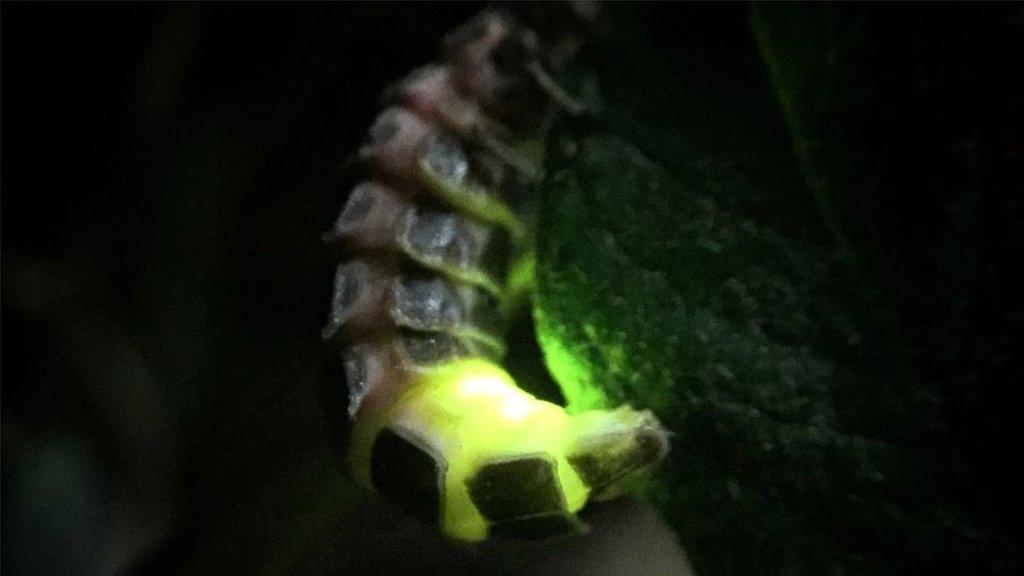Breeding glow worms found in Nottinghamshire heathland
- Published
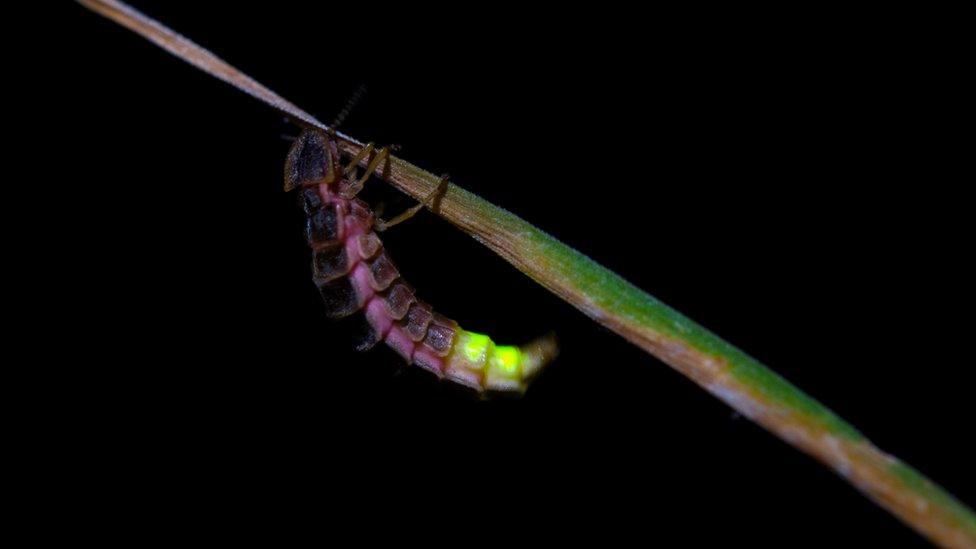
Only female glow worms are able to give off light
A small population of breeding glow worms have been discovered living in a Nottinghamshire heathland.
Sherwood Forest Trust said it was "beyond excited" by the discovery at Sherwood Heath, a site of special scientific interest (SSSI) in Ollerton.
The glow worms are actually beetles and only survive for a few weeks in June and July to breed and lay eggs.
The trust said a lot of work had gone into creating an environment suitable for the creatures.
This summer the trust saw 25 female glow worms at Sherwood Heath.
It was hoped there were also a similar amount of males, which do not glow.
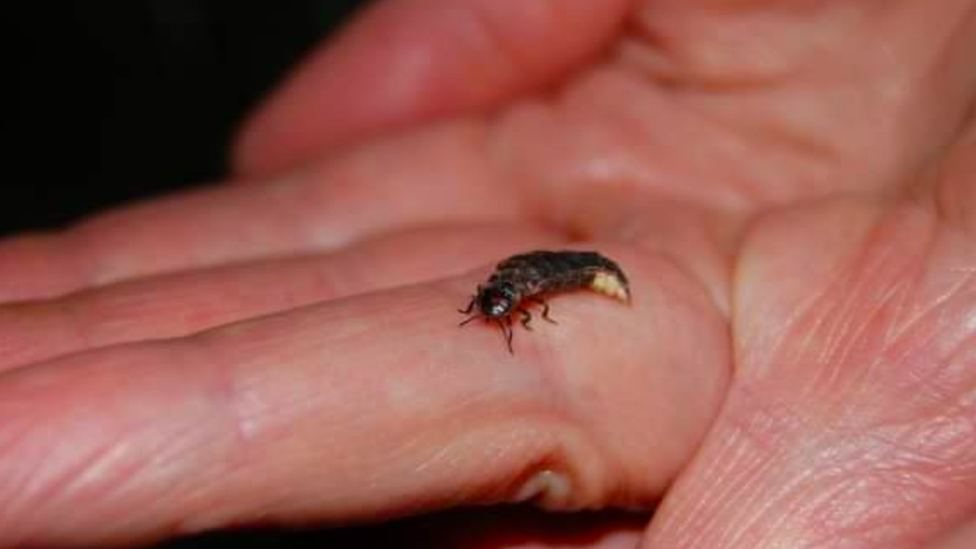
The glow worms will not be visible again at Sherwood Heath until June 2025
The adult beetles only live for a few weeks, during which time a female can lay up to 100 eggs, external on the ground.
It takes two years for the hatched larvae to fully mature meaning the glow worms will not be visible again at Sherwood Heath until June 2025.
Only one glow worm was seen at the site in 2021.
Katie Doull, a community conservation officer at the trust, said: "It's pretty exciting because glow worms in general are declining as a species throughout the UK.
"There's about 2,000 species worldwide and only two known in the UK."
She said they prefer heathland sites that were dry and sandy - an environment that had severely declined in recent years.
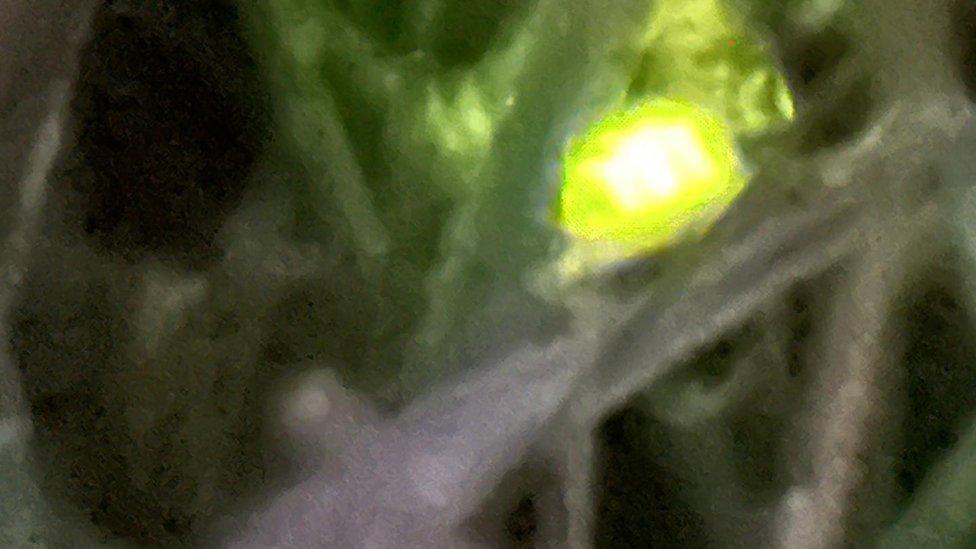
The trust said it was adapting its heath management plan to help protect the areas where glow worms were sighted
She said a lot of work had gone into creating a habitat at Sherwood Heath where they could thrive, like cutting down overgrown trees.
"We've got a lot of heather that grows on the heathlands," said Ms Doull.
"If we were to let it grow all this heather would be overshadowed by trees and scrub.
"We do a lot of volunteer sessions on the heath to get rid of this scrub and protect the heather and other important plant species on the heath."
In a bid to protect the glow worm eggs, the trust said it was adapting its heath management plan to help protect the areas where they have been sighted.
Walkers and dog walkers have been asked to stick to the paths.

Follow BBC East Midlands on Facebook, external, on Twitter, external, or on Instagram, external. Send your story ideas to eastmidsnews@bbc.co.uk, external.
- Published7 June 2023
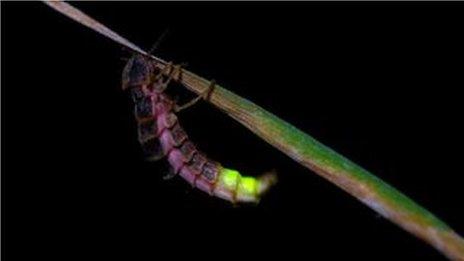
- Published13 June 2023
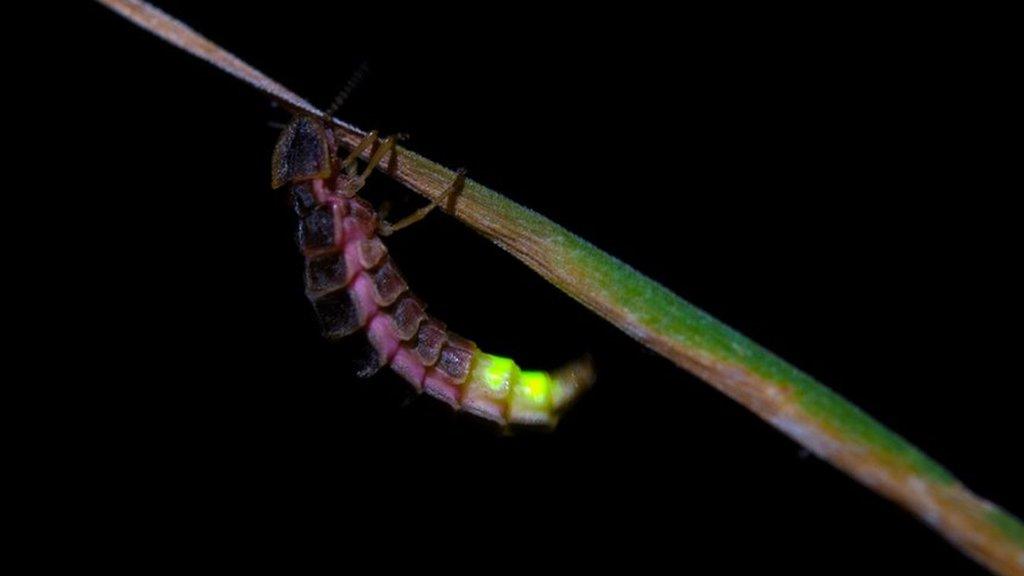
- Published19 March 2023
